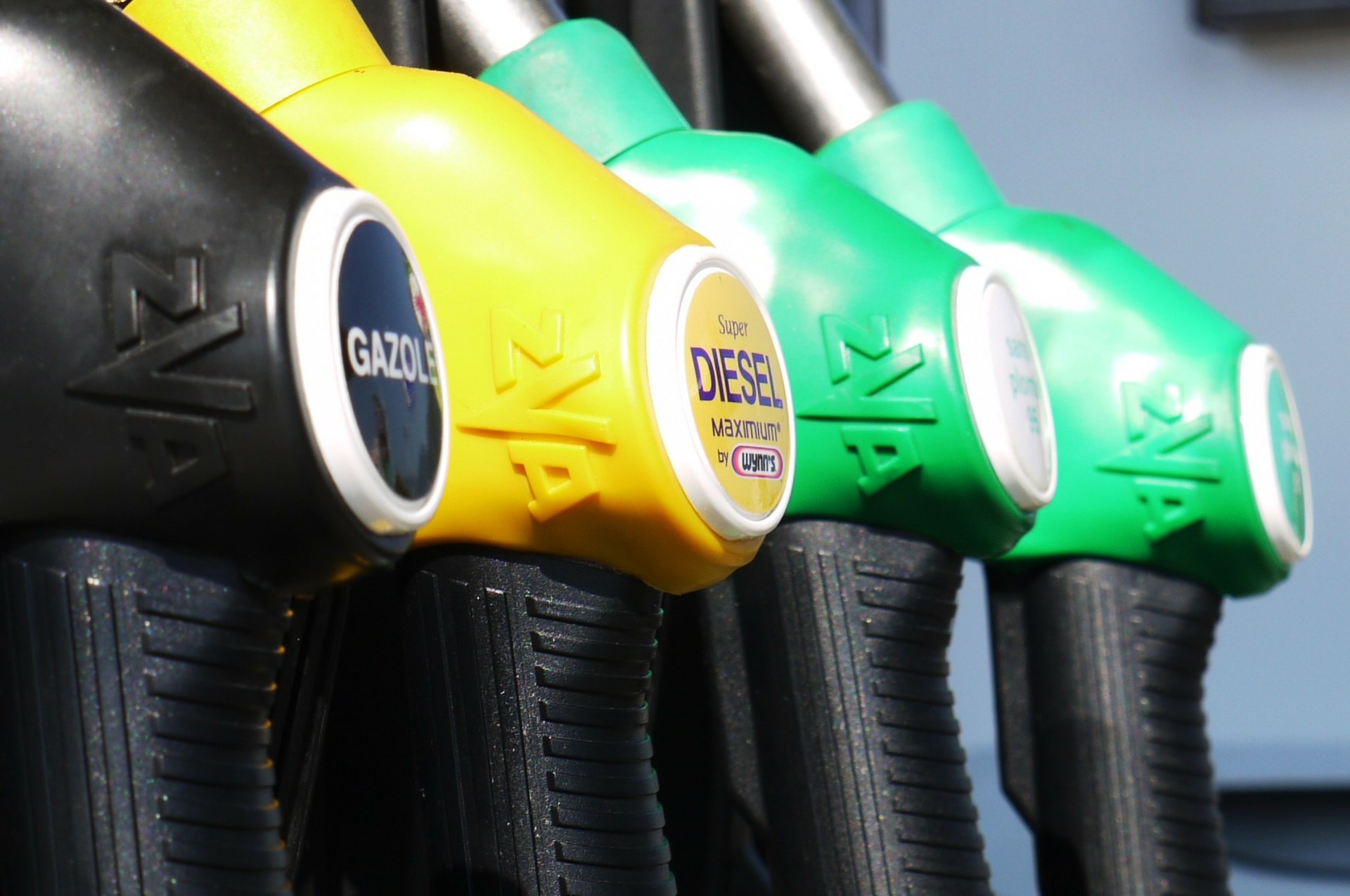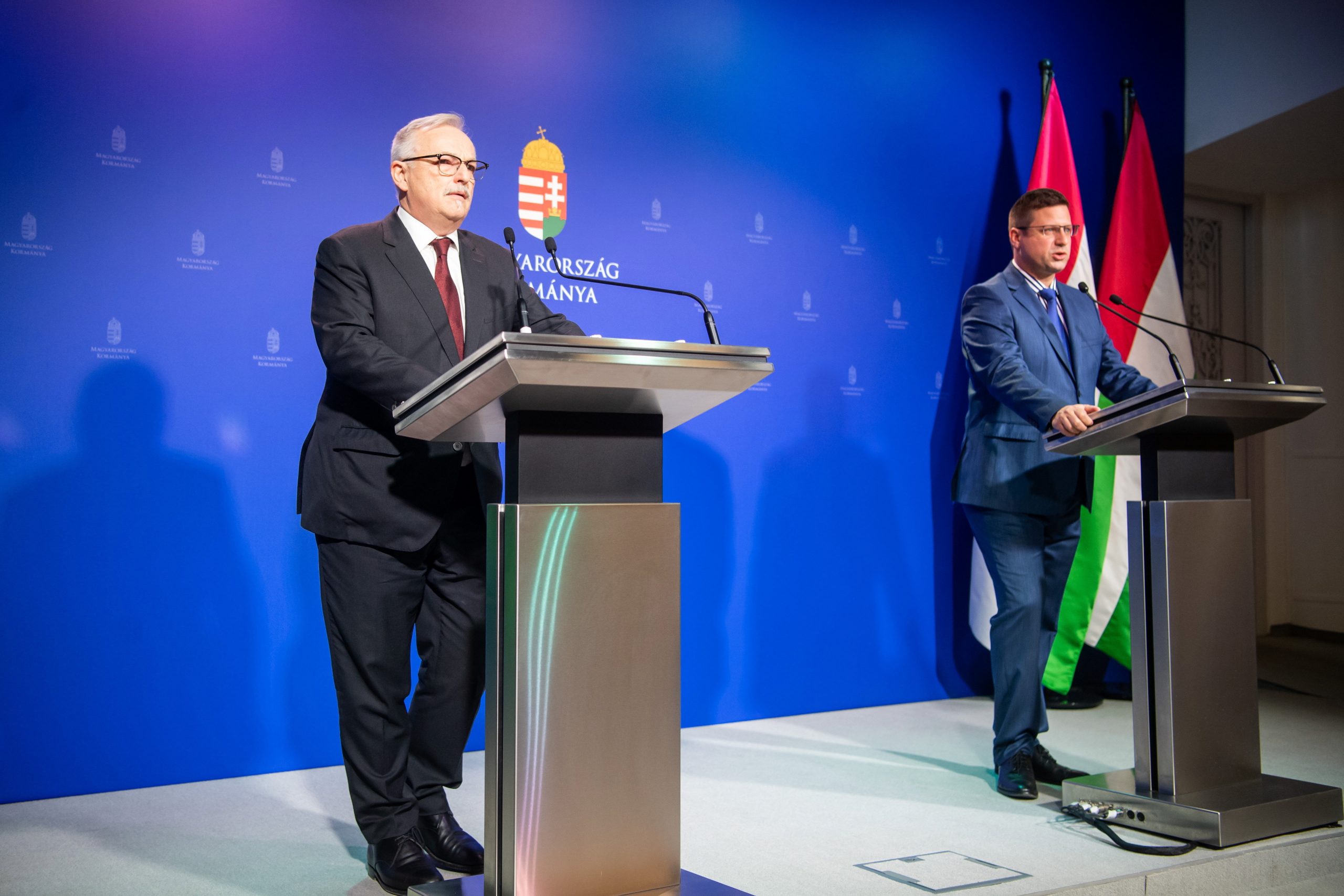
Although Hungarians have been asked to fill up with only as much as they need, the figures paint a different picture.Continue reading

Zsolt Hernádi, CEO of Hungarian oil and gas company MOL (left) and Gergely Gulyás, Minister of the Prime Minister’s Office.
An extraordinary Government Info briefing was held on Tuesday evening at 10:30 pm, attended by Gergely Gulyás, the Minister heading the Prime Minister’s Office, and Zsolt Hernádi, CEO of Hungarian oil and gas company MOL. Gulyás announced that the fuel price freeze in Hungary will be lifted from Tuesday evening at 11 pm, as the measure can no longer be maintained.
Gulyás explained the decision by the oil sanctions that went into effect on Monday, and added that MOL had also supported the decision. He stressed that the result of the Brussels sanctions is that the 480 forint capped fuel price cannot be guaranteed to Hungarian families at all petrol stations in the country.
Gulyás said that the new sanctions had caused disruptions in Hungary’s fuel supply in recent days, which could be felt by all.
MOL informed the energy minister in a letter on Monday that it could not solve the country’s fuel supply problem without imports,
he added. He said that the government had asked MOL to ensure the country’s full fuel supply, if necessary, even by organizing imports of fuel from the more expensive Brent oil.
The decision was not wholly out of the blue; after the situation over the last few days, it was thought that the price freeze will soon end. Over the last few days, panic buying began in Hungary, which has led to several petrol stations running out of fuel – something that has never happened before. There were queues of cars at petrol stations, and several places announced that they had run out of petrol at the capped price, with only premium products at market prices available.
Part of the problem is that there is a lack of imports coming to Hungary, as foreign sellers do not want to bring their goods here for less money because of the price cap. Meanwhile, the supply on the Friendship oil pipeline is also faltering, and MOL’s Danube Refinery is not operating at full capacity due to maintenance. However, the oil company recently announced that it had already restarted the Danube Refinery, but reaching full capacity will take several weeks, and the supply problems will not be solved overnight.
Zsolt Hernádi, CEO of MOL, gave similar reasons for the lifting of the fuel embargo. He said that a quarter of their petrol stations had experienced shortages in recent days. Since MOL has been around, nothing like this has ever happened, he said. According to his information, the company has sold 2.2 billion liters of fuel so far this year, compared to 1.5 billion last year. In the last seven days, more than 50 million liters of fuel have been sold, up 60 percent from a year ago.
Demand has skyrocketed, consumers are stockpiling, and a panic has set in,
he said, adding that MOL has held up so far. Hernádi stressed that the capped price regime had lasted for more than a year and the oil company had done everything to ensure supplies. Their oil trucks are running day and night, but they cannot deliver any more, he said.
The CEO also said that in addition to the delayed effect of the Brussels sanctions already in place, the new sanctions that will come into force on February 5 will again create a critical situation. From February onwards, diesel fuel from Russia, which accounts for 10 percent of the total, will be absent from the European market.
According to Hernádi, the benchmark prices at MOL stations – from which there may be a deviation – are 641 forints (EUR 1.55) for 95 octane petrol and 699 forints (EUR 1.70) for diesel.
The company’s CEO also said that the ceasing of the panic reaction alone would be enough to clear up the chaos relatively quickly, that importers would like to regain the market and that the operation of the refinery would be restored. To return to the previous situation – with 70 percent of fuel supplied by MOL and 30 percent by importers – could take a month or two.
Featured photo via MTI/Balogh Zoltán